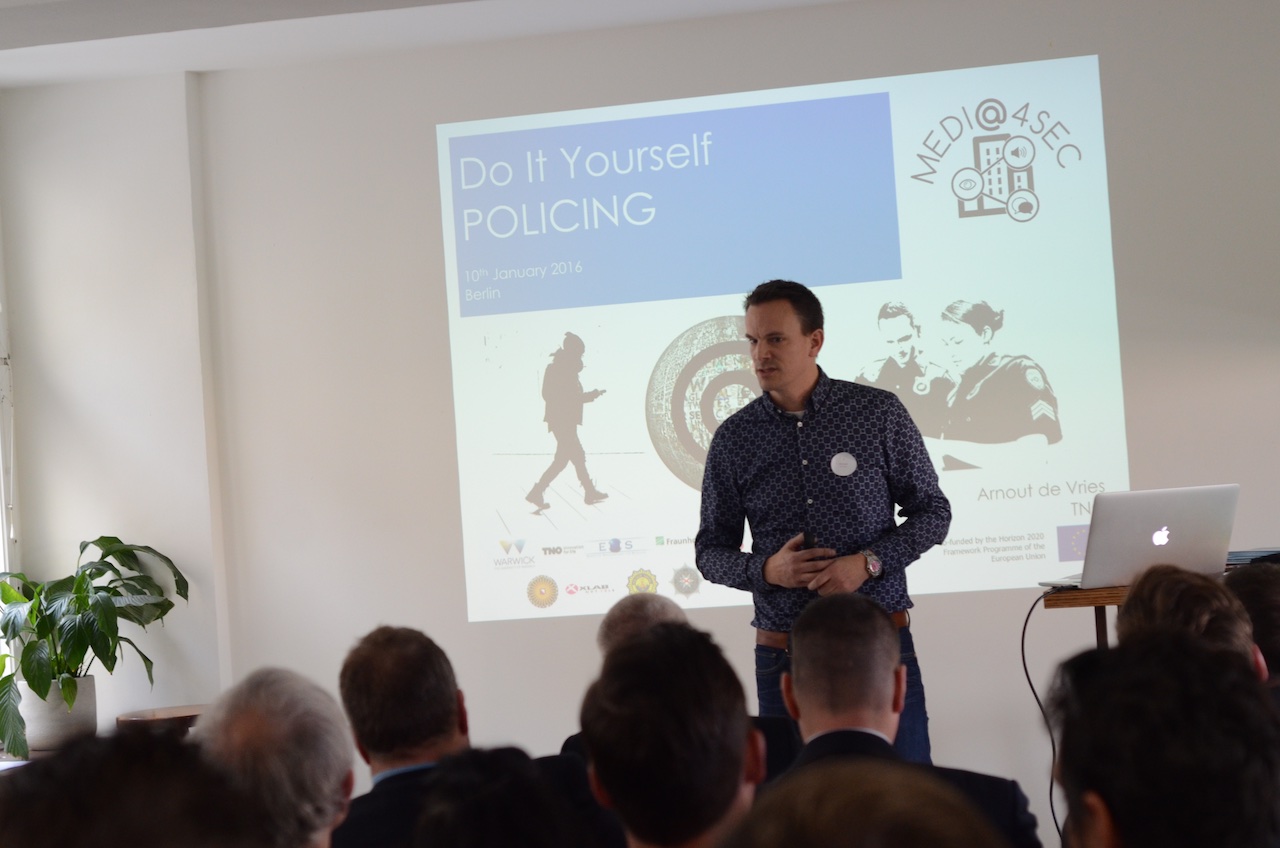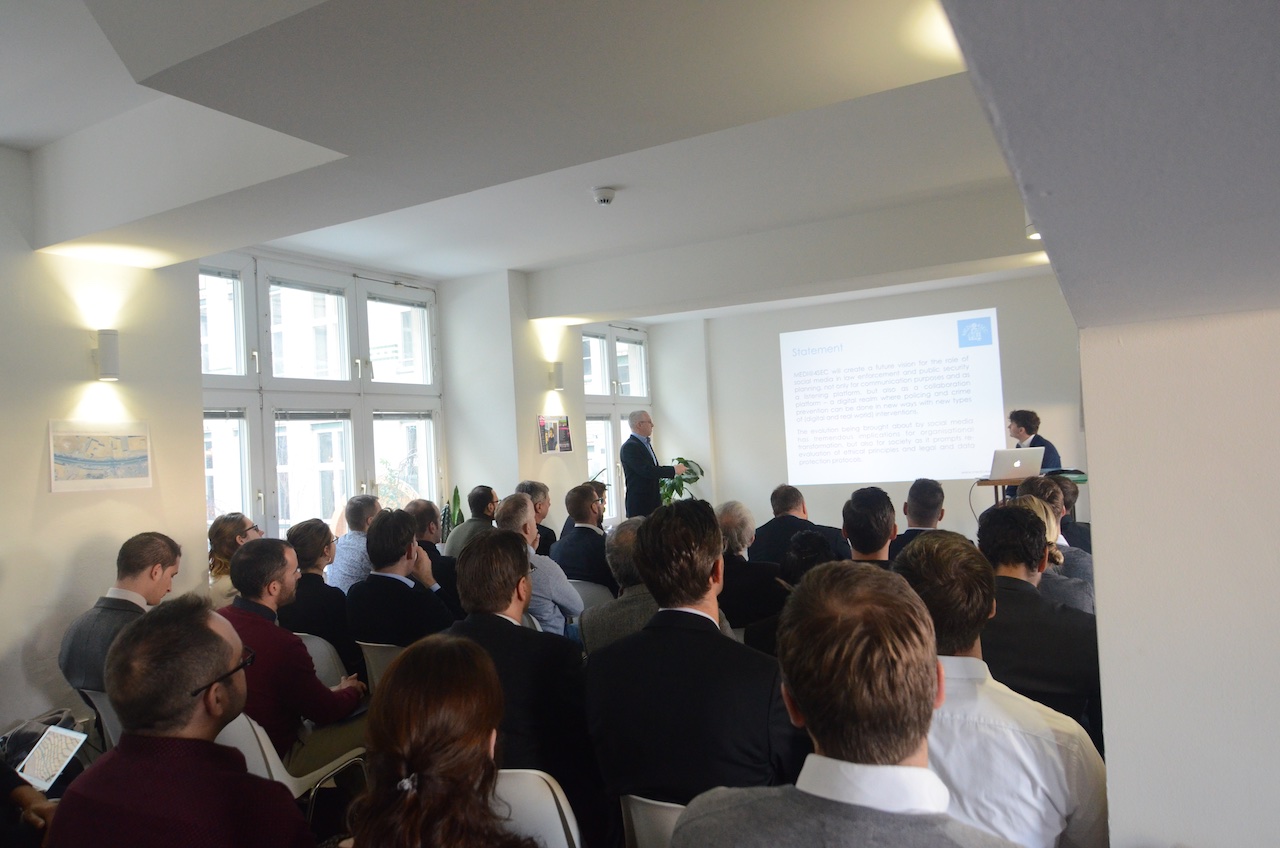Berlin, Germany, January 2017 – What are the potential and challenges of social media use by citizens when it is closely related to or overlaps in part with police work? How can crime prevention benefit from do-it-yourself (DIY) policing? How can we improve collaboration with citizens within current legal frameworks? How can citizens and police closely cooperate on DIY policing? How can investigations benefit from DIY policing? These were the main questions discussed at the workshop on “Do-it-yourself policing” of the MEDI@4SEC project, held in Berlin (Germany), on 10 January.

Social media empower citizens to perform activities that fall within the range of police work and that of other organisations dealing with public security. As modern Sherlock Holmes, citizens assist the police or other public security actors. They investigate crimes, identify suspects, form vigilante groups, hunt paedo- criminals and prevent and report on crimes. Through interacting at the workshop on DIY policing, participants stressed the potential of these contributions to public security by improving intelligence, investigations and even shape security policy-making and security management.

However, it is important to keep in mind that DIY policing raises a number of ethical questions. Whilst citizens can be enabled to assist the public security effort, they can also create great harm when acting irresponsibly. It also raises the question of the availability of resources to transform the future of policing.
The do-it-yourself policing workshop was the first of six workshops to be delivered by the MEDI@4SEC project in order to develop a community on issues related to social media use for security purposes. During this event, hosted by the project partner Fraunhofer IAO, representatives from law enforcement agencies, citizens, civil society, as well as local, national, and European policy-makers and researchers discussed the opportunities and challenges of DIY policing and its relevance for public security today and in the future. They also exchanged best practices, sketched future solutions and developed input for roadmaps and policy agendas.

The full report of the workshop will soon be available on the MEDI@4SEC website.
To be updated about the MEDI@4SEC project you can join our community on LinkedIn or follow us on Twitter @MEDIA4SEC or through the MEDI@4SEC working group on Efus Network.





